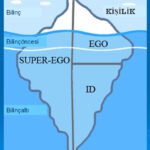Human emotions and feelings often play a critical role in shaping our understanding of power, but what is the actual value of this power when it is perceived as ineffective. The notion that a particular abled model of working and employment will inevitably lead to increased productivity and slower economic growth is not only flawed but inherently inefficient and unsustainable. Such an ideology fails to account for the nuances of local contexts and the unique challenges faced by regions like Gilgit Baltistan, where 80,000 of, us, disabled people reside
In the context of Gilgit Baltistan, where socio-economic structures are deeply rooted in cultural and geographical realities, adopting rigid, externally imposed employment or economic models can be counterproductive. While the ideology might hold theoretical merit in different scenarios, it does not align with the specific needs, resources, and aspirations of the people in this region. Instead, a more localised, inclusive, and adaptive approach is essential—one that respects the lived experiences of the community and harnesses their unique strengths for sustainable growth.
The accurate measure of a successful model lies in its ability to integrate emotional intelligence, community engagement, and practical innovation into its core, ensuring that the power wielded is meaningful, equitable, and capable of fostering genuine progress.
Evaluating Disability as a Source of Competitive Advantage
In their article, Luisa Alemany and Freek Vermeulen cite that disability should be used as a competitive advantage rather than a barrier to employment. To quote a particular case near Pakistan, Consider the Gran Estación shopping mall in Bogotá, Colombia, which employs many people with physical disabilities in a variety of roles—for example, customer relations. People who want to meet with someone in customer service are often upset and angry. Disabled employees seem better able to defuse such emotions, according to the mall’s general manager. It may be that the social model has contributed to it, but in turn, employers get more satisfied with their choices.
Colombia, like Pakistan, has an insecure political climate. It does not mean that they are violating the rights of their disabled citizens.
To what do I owe the Pleasure?
Drafting this article for this review was challenging, but it also shows that to err is to be human. Each day that we do not change this, each day, disabled people are more socially excluded, who are unused workers, that have more productivity than their non disabled counterparts. Why do we still make the same mistakes? Are we really selfish as Freud’s ID seems? Do we not want to better ourselves?




